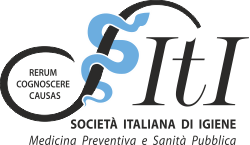In addition to observing common hygienic norms (hand washing, elimination of liquids and contaminated food), the best way to protect against the Hepatitis A is vaccination. It must be remembered that the hepatitis A virus is endemic (ie constantly present in the territory) in many areas of the world.
The vaccine consists of inactivated viruses and is administered intramuscularly.
In Italy in 1999, following an epidemic between 1995 and 1997, Puglia added the Hepatitis A vaccine to its schedule, with two doses administered: the first simultaneously with the MPRV vaccine at 13 months, and the second dose after 11 months or by the 24th month.
Other regions provide the vaccine free-of-charge when there is an epidemic outbreak or to people visiting countries where the disease is widespread.
There is also a combined vaccine against hepatitis A and hepatitis B that is used in individuals who are susceptible to both viruses.
When to vaccinate
The vaccine is recommended for children from 12 months of age, in two doses at least 6 months apart, which guarantee long-lasting protection.
It is also recommended for:
- People who travel to areas where the disease is very common, such as Central or South America, Mexico, Asia (excluding Japan), Africa and Eastern Europe. In these cases it is best to be vaccinated at least one month before travelling;
- Homosexuals;
- Drug addicts;
- Subjects with chronic liver disease;
- Subjects treated with concentrations of coagulation factors or blood derivatives;
- Subjects working in research laboratories where contagion is possible;
- Members of families who intend to adopt a child from a country in which hepatitis A is endemic;
- Children, adolescents and subjects living in places where there are outbreaks;
- Subjects who are likely to have come into contact with the hepatitis A virus.
Who should not be vaccinated (contraindications)
- Children who have had a severe allergic reaction (anaphylaxis) to a previous vaccine dose;
- Children who have an allergy to a component of the vaccine.
It is important to always tell your doctor about your child's allergies, especially if they are severe; this includes an allergy to latex.
All hepatitis A vaccines contain aluminium hydroxide and some contain 2-phenoxyethanol.
When to postpone vaccination
People with mild illnesses can generally be vaccinated safely. For subjects who have moderate or severe illnesses, it is advisable to postpone vaccination until after recovery.
During pregnancy it is believed that the risk for the mother and the unborn child is extremely low, given that the hepatitis A vaccine is inactivated (killed). It is the duty of the physician to evaluate if the need for protection from the disease exceeds any theoretical risk deriving from vaccination.
Vaccination risks
Like any other drug, vaccines could cause severe allergic reactions, although the risk of such reactions is extremely low.
In particular, the hepatitis A vaccine is a very safe vaccine, and only in very rare cases causes serious problems (serious allergic reactions), although some mild reactions can occur and can last for 24- 48 hours:
- pain at the injection site (half of adults and 15% of children);
- headache (15% of adults and 4% of children);
- lack of appetite (8% of children);
- weakness (7% of adults).



